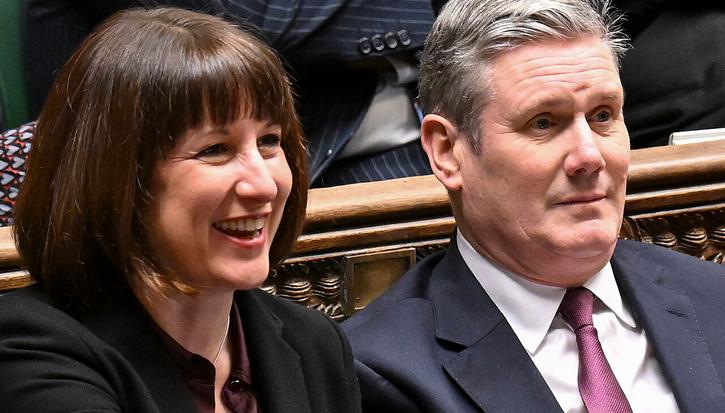Juncture interview: Ngaire Woods on the new world order
Article
Juncture: Are we moving into a new world order? Is China really eclipsing the US?
Ngaire Woods: Since around 2004 the world has woken up to the fact that the position of China has been changing dramatically. That was when people started seeing the beginnings of what some call China's 'scramble for Africa'. The 2008 financial crisis just accelerated that process, by an order of magnitude, because it led both the US and the eurozone to look even more in at themselves, to contract their aid budgets and engagement with others - which meant that for developing countries, China has become even more important.
This is why when you talk to some African governments they're far more interested in the upcoming change of leadership in China than the American presidential election. When China hosts a meeting for African or developing country leaders, they get every head of government at their meetings. When the EU hosted its summit for African leaders, hardly a single one attended.
But let's be clear - I don't think we are on the brink of China eclipsing US power. Every decade there's a thesis that says that the US is declining which then proves to be faulty. The US has one huge advantage over China: it has a rule-of-law system which is seen by the rest of the world to work fairly well. This is why, even after the global financial crisis - which started in the US, because of a failure of its system - you still saw money piling into dollars. There remains this sense of a system that is deeply rooted in the upholding of private contracts and the rule of law.
The serious challenge that China has now to deal with is how to actually deepen its own rule-of-law system. The rest of the world thinks that China has this incredibly powerful central government and central party committee, but the senior Chinese leadership understands that while they can regulate and decree certain things, that doesn't mean that they can actually make them happen. Finding ways to ensure that the centre can control the provinces, in an era where you've got provincial governors who have acquired huge control through corruption and by other means, is a major challenge for the Chinese government as it increases its relative global power.
J: Will China increasingly impose its economic model, like the US has done through the Washington consensus?
NW: We should be careful about talk of a Beijing consensus supplanting the Washington consensus. The Washington consensus on economic liberalisation was framed in Washington DC and was then pushed out to the rest of the world. That is not at all what's happening in Beijing. They are not framing consensus policies for the rest of the world and pushing them out. There it's a bottom-up process where you go to small developing countries who aren't interested to know how Europe and the US did it. They want to know how China did it: they compare growth rates of 2 per cent and 20 per cent and they say 'we know which model we want'. And now they look at the financial crisis and they say: 'Wow, the institutions of the US and Europe imploded, they proved hopeless to deal with this huge amount of leverage in the financial services system, so we're looking for a different model.'
J: So if you don't buy the idea that we're moving to a unipolar world dominated by China, does this mean you think there will be a multi-polar world with no single hegemonic power? Will this mean greater volatility, with emerging powers less interested in working through international institutions?
NW: Yes, it's a world in which countries have increasingly equal power and are competing. But I do not think that this means that the world is necessarily going to become more volatile and disordered. I think the great powers, as I would call the US and China, will recognise a convergence of interest because they both have great commercial interests, some of which will come together. Or at least their interests will converge on maintaining stability.
Of course, China will engage with other nations on a bilateral and a bi-regional basis. Multilateral institutions will not be the primary place for Chinese negotiations - in the same way they have never been for any great power. For years, people called the G7 the G1 and said the G7 comprised the US with a little communications group around it. So there is nothing new about the way China chooses to use international institutions.
China (like the US) has very powerful mercantilist interests that it is pursuing through its international relations, and primary among these is a desire for long-term stable access to the raw materials and commodities that China needs to continue growing. So it's no surprise that we see in China's relations with developing countries a desire to secure these long-term interests, and it's found that the best way to do that is to negotiate from what they would refer to as 'mutual respect' for sovereignty.. But let's not confuse that with any sense that because China's acting with respect it's not extracting maximum commercial terms, because it is.
Yet it is wrong to believe that China - or Brazil or Russia - will simply walk away from multilateralism.
Firstly, rules that are enforced globally give certainty to business. Secondly, they give a consistency across the world so that you can start practising your global operations on a level-playing field. And thirdly they level the playing field for your competitors, so you know that they're having to play by those rules too. There is a good reason why business wants global rules - so, as Chinese business, and Brazilian business and as Russian business goes global, they too are going to want to see global rules for the same reasons.
Likewise, the IMF will also continue to play a vital role. I think it's quite important to realise that countries like China and Brazil have huge financial services firms that are increasingly going global. In five to 10 years, when Chinese banks or Brazilian banks get into trouble making huge loans to sovereigns abroad, they will need the IMF - not to lend to them, but to go and sort out debtor sovereigns who owe their banks money.
J: This will require global institutions to accommodate these emerging nations and their interests better - but are they up to it?
NW: Well, how institutions evolve to reflect changes in the distribution of power is an age-old problem in international relations. The status quo countries try to cling to their power and they do that by clinging to the international institutions that they've used to mediate their power in the past. Actually, you want to engage the upcoming powers in those institutions.
There has been some success in recent years with China engaging with the IMF, the World Bank and the WTO. We're seeing a quiet change in the face of the World Bank. The chief economist is now a Chinese official, Justin Yifu Lin. The Chinese have also succeeded in having a deputy managing director in the IMF - again, a very senior Chinese official. That would have been unthinkable 10 years ago, and it was the economic crisis that made that change possible.
And the perception of a US bias has been further countered by the appointment of Jim Kim to the presidency of the World Bank. This was a big step, because although he is a US citizen, and was appointed by a US administration, he is nevertheless perceived as being quite a global person. So if you look at the senior management in both institutions, you'll see things are starting to change.
J: What do you think of the prospects for the G20? It was said to have had its 'cometh the hour' moment in London 2009, but since then many say it has failed to reproduce that performance.
NW: The G20 is important - it's just that people became delusional about it after London 2009 and started thinking that it would rule the world and solve problems which it was never going to handle. It's an important forum for agenda-setting; it's an important forum, especially in the middle of a crisis, for allowing world leaders to talk to one other. Of course it's important to have a talking shop, and we saw that in November of 2008 when President Bush immediately brought the G20 leaders together. That was crucial.
But the reality is that the G20 has become a kind of G8 annual photo opportunity for world leaders. At the G8, leaders feel compelled to make grand commitments, but scholars who have looked into the extent to which those commitments are subsequently met uncover extraordinarily disappointing results. There is another challenge facing the G20, which is that because the G7 finance group has continued to coordinate policy in quite a structured way, the non-G7 countries of the G20 feel that they are left out of that process. Consequently they have started to coordinate policy among themselves, so we've now got a BRICs group coming up with their own agenda. The G20 is going to have to work really hard to convince people than it's not just the G7 plus invitees.
J: How does Britain prosper in the new world order?
NW: Britain's position has evolved, as you would expect, very pragmatically. The Brits who don't feel part of Europe need to travel to far-flung parts of the world a little more and work out why the rest of the world sees Britain as a European country. When you look back as an outsider, you see, for example, so many similarities between the British and the French; you suddenly understand what Freud called the 'narcissism of petty difference'. This is why the British and the French hate each other: they are close enough to each other to understand each other's foibles. You can't have any sense of history and not see Britain as a part of Europe.
Looking to the future, it's hard to see how Britain isn't always going to have to take advantage of its relationship with the EU. This doesn't mean it needs to join the euro. I've always been a bit sceptical about the functioning of the eurozone - but I'm not remotely sceptical about the EU, it's such an obvious union of self-interested states who, for both security and economic reasons, pursue their mutual interests together. And the logic for doing that in a world in which the major competitors to the European countries are the size of China and the US is a no-brainer.
Juncture met Professor Woods at the Blavatnik School of Government in Oxford. This is an extract from the full-length interview published in Juncture 19(2).
Related items

Regional economies: The role of industrial strategy as a pathway to greener growth
Regions like the North should have a key role to play in the development of a green industrial strategy.
Achieving the 2030 child poverty target: The distance left to travel
On 27 March, the Scottish government will announce whether Scotland’s 2023 child poverty target – no more than 18 per cent of children in poverty – was achieved.
Spring statement: A changed world calls for a changed course
If there are decades where nothing happens and there are weeks where decades happen, the last few weeks feel seismic. The prime minister was right to say the world has changed. Donald Trump’s re-election in November has unleashed a wave…